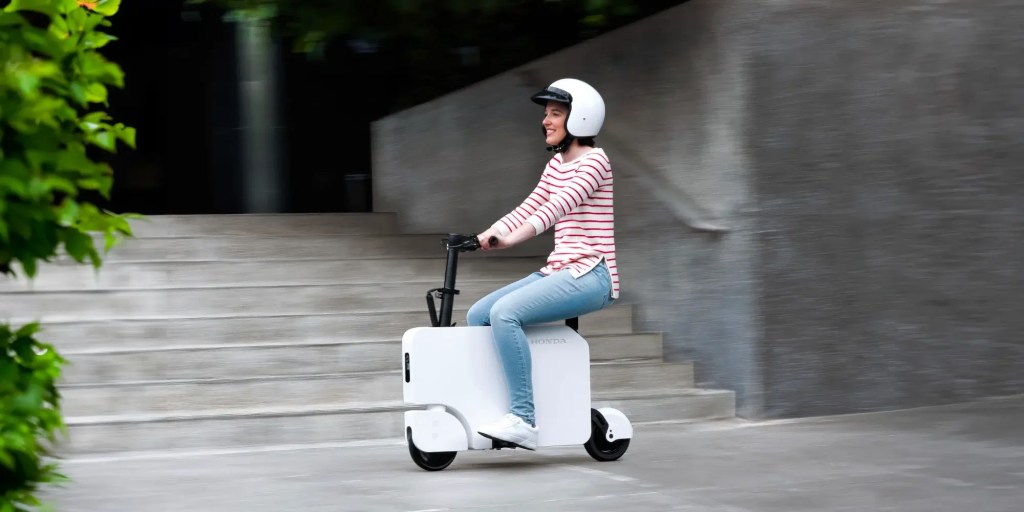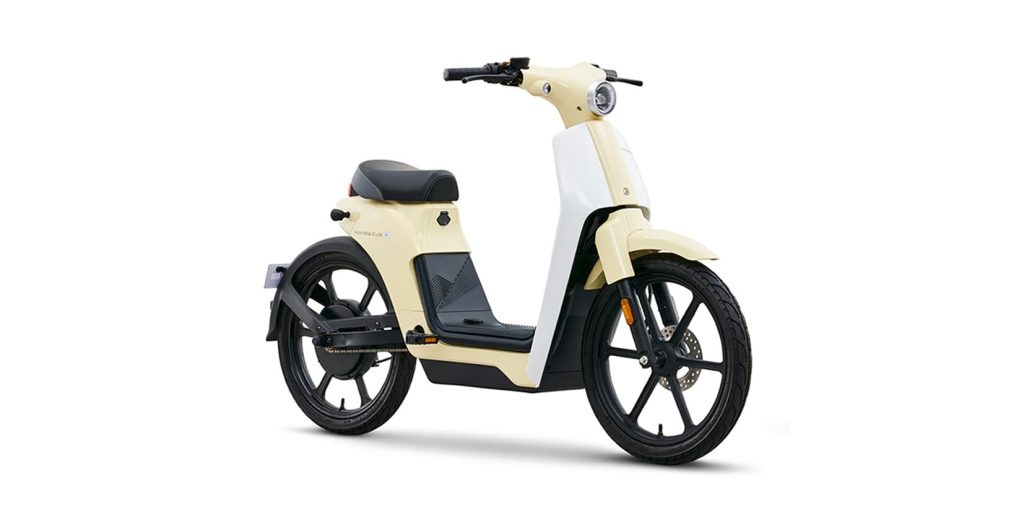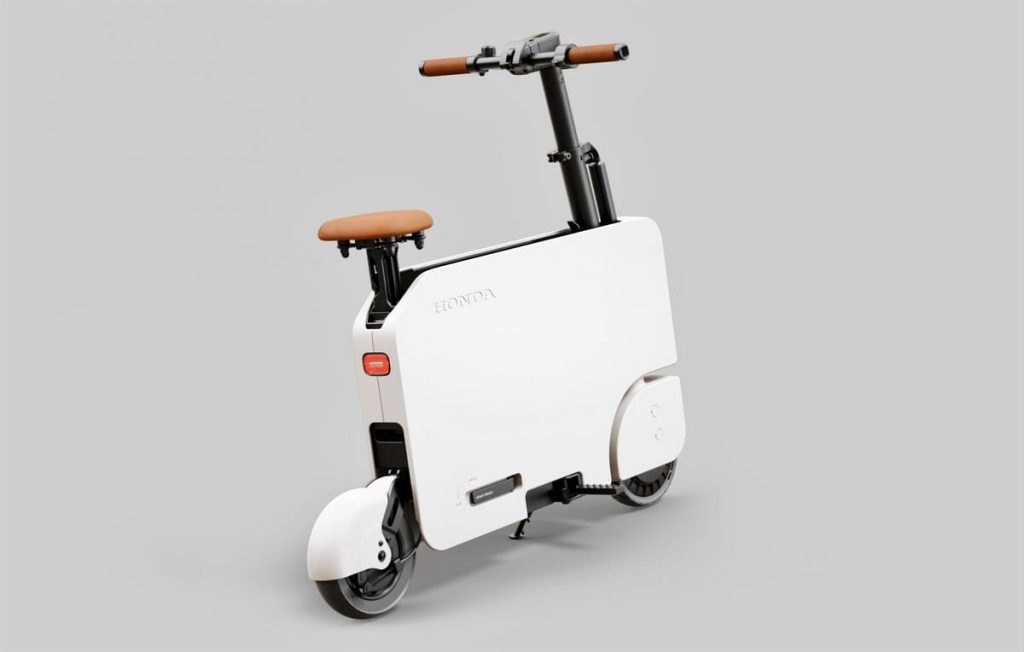Honda has been on a roll lately, pumping out interesting and innovative electric two-wheelers including scooters and bicycles. Could the Japanese automaker suddenly be taking the segment more seriously?
Honda is a veritable powerhouse in the automotive and motorcycle markets. But it’s no secret that the company has lagged behind many other major manufacturers when it comes to electric vehicles. The upcoming Honda Prologue is the company’s first electric SUV and its long-awaited debut appears set for next year. But it pales in comparison to the extensive lineup of electric cars, SUVs, and trucks produced by other manufacturers, many of which have already been on the road for years.
However, the company has just shown off two very interesting light electric vehicles that are targeted at a very different market: micromobility.
We’ve followed the Honda Motocompacto for several months as the small folding electric scooter has steered its way towards consumers. Just last week Honda finally opened the order books for the Motocompacto, bringing the $995 retro-inspired electric scooter to market. It may be small, but Honda sells it from its traditional automotive dealerships and treats it like any other vehicle in its catalog.

At the same time, we got our first look at an interesting electric bicycle concept from Honda, showing off how the company could enter the electric bicycle market with a promising entry. The bike eschews futuristic and difficult-to-manufacturer designs, instead opting for many off-the-shelf bicycle components that allowed Honda to focus its design energy on an innovative frame and construction.
The result was an electric bicycle that actually looks ready to produce, though we don’t yet have any indication that Honda is planning on bringing its electric bike to market.
These two examples may be the most recent, but they’re hardly the company’s only foray into electric two-wheelers. Honda has produced an electric version of its PCX electric scooter for years and more recently rolled out Honda Cub remakes that feature electric drivetrains.
The company even claims to be hard at work on developing four new electric motorcycles said to debut by 2025.

As urban landscapes become increasingly congested and the global community grows more environmentally conscious, Honda appears to have recognized the need for sustainable and efficient mobility solutions – even if that realization hasn’t made it into the company’s automotive department. Honda is diversifying its portfolio and aligning with the green transition, reshaping the mobility sector by venturing into producing electric scooters and potentially electric bicycles.
Electric scooters and bicycles offer many advantages over full-size cars (or even combustion engine scooters and motorcycles), including reduced emissions, lower operational costs, and the convenience of navigating tight city spaces. Electric bicycles even add their own significant health benefits as well. Honda’s move to embrace these platforms could suggest a strategic shift towards capturing the growing market of eco-friendly commuters, potentially signaling their growing interest in small-scale EV technology.
But the development of electric scooters and bicycles is likely more than a business expansion for Honda – it’s a signal of what’s to come. By focusing on EVs, and especially smaller two-wheeled EVs, Honda could contribute to the reduction of urban air pollution and the global carbon footprint, supporting the worldwide effort to combat climate change.

With its eyes hopefully finally set on the future, Honda may not just be adapting to the electric revolution, but could actively help shape it. A steady stream of light electric motorcycle startups has moved in to fill the void left by major manufacturers like Honda, but that doesn’t mean we should count such larger companies out.
If legacy manufacturers realize it’s not too late, they could play a significant role here. Kawasaki was late to the e-motorcycle market but recently released a pair of respectable, albeit low-powered models, showing anything could still be possible this early in the burgeoning electric two-wheeler market.
Honda appears to be aiming even smaller in the beginning with e-bikes and e-scooters, but filling that role is no less important. As the company develops and launches its small-scale electric vehicles, it reiterates the importance of key players in driving the transition towards a more sustainable and electrified future on two wheels.
Read the full article here



